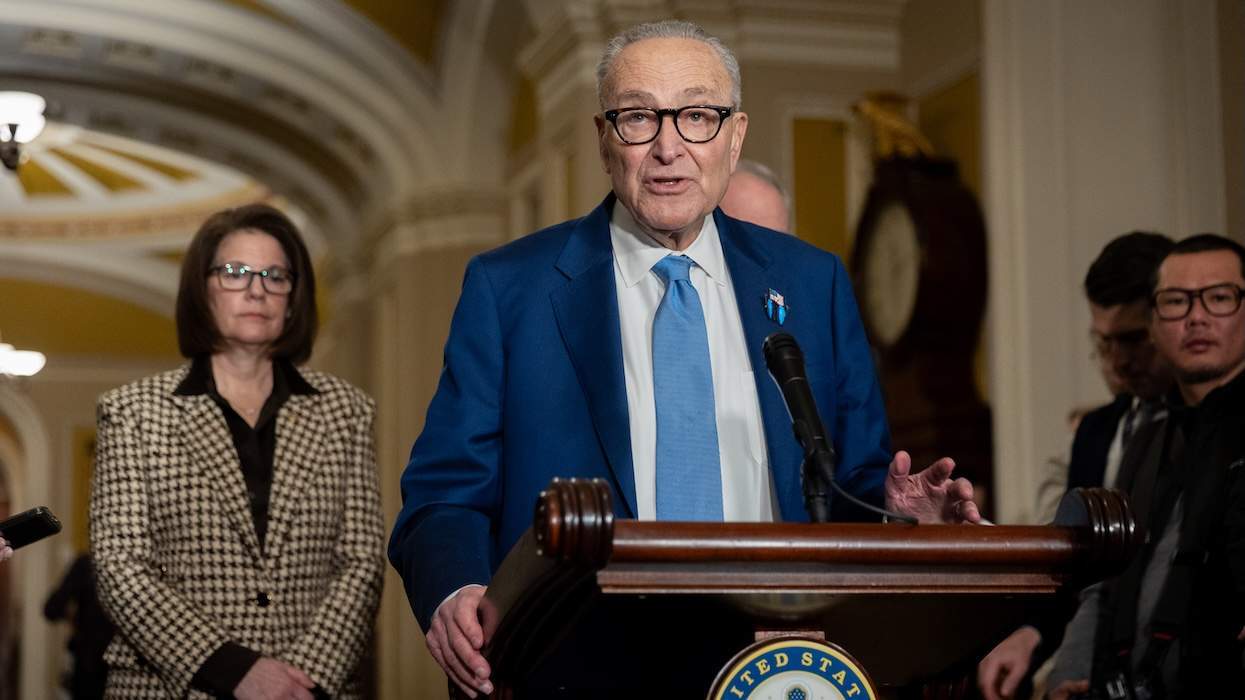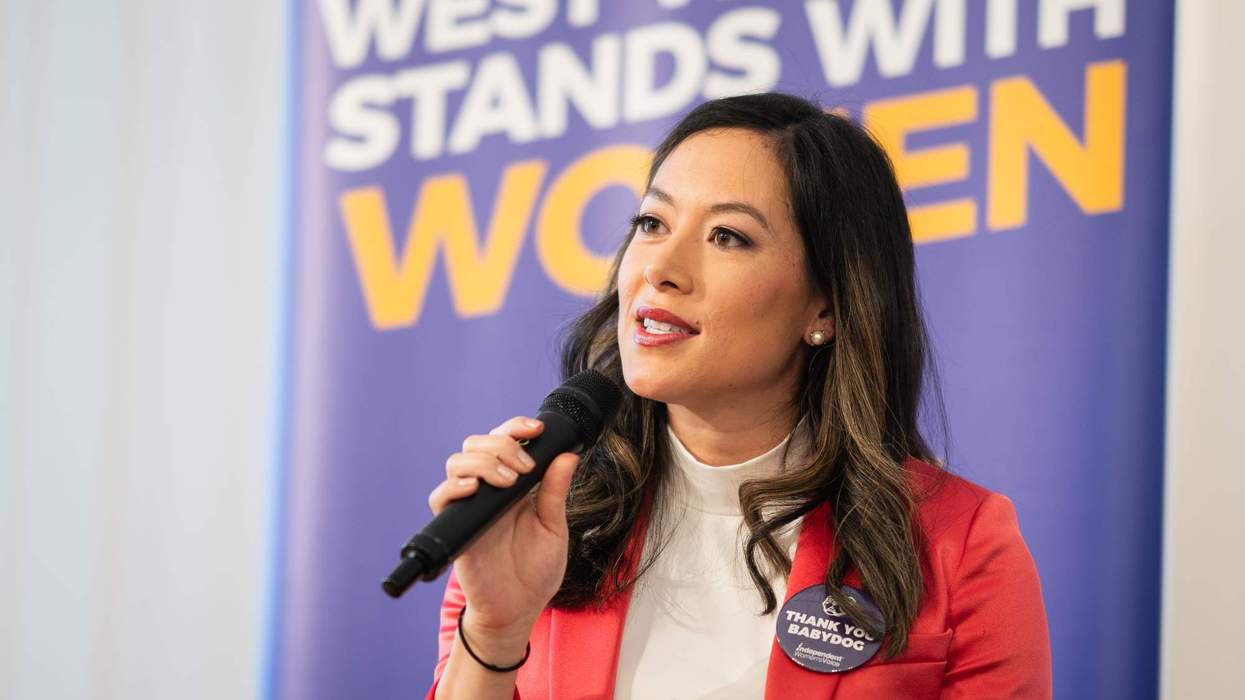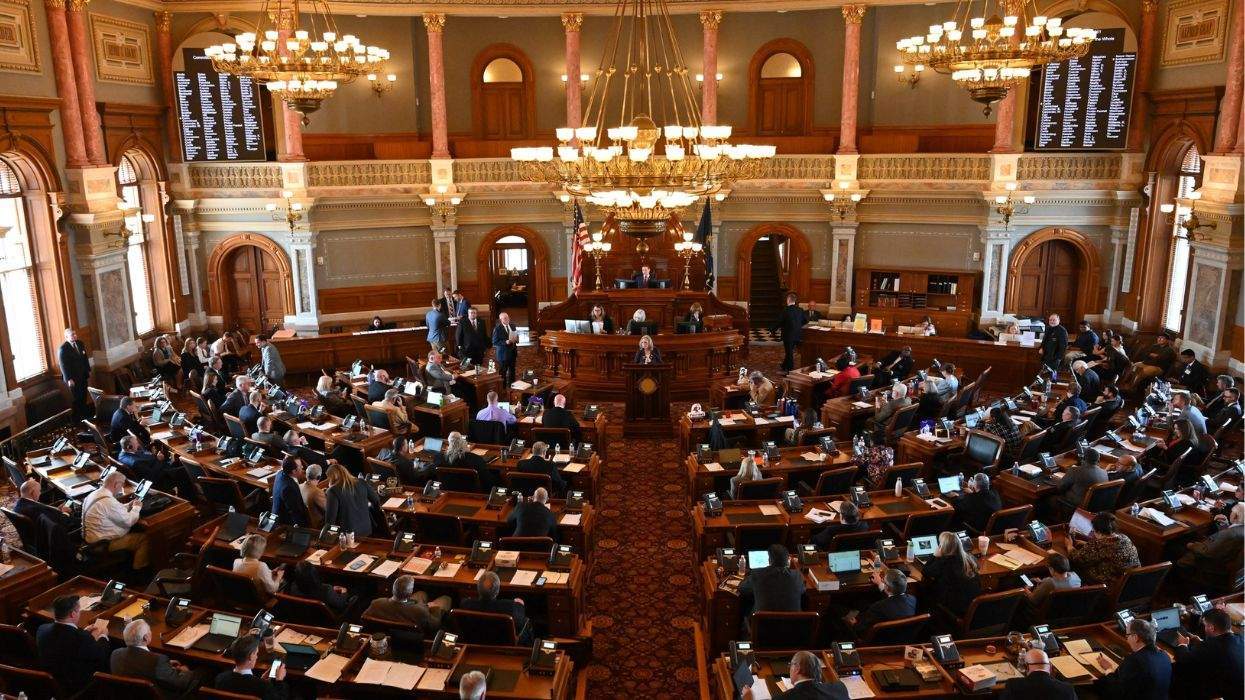The LGBT movement has made enormous progress in recent years, in large part by focusing, laser-like, on what's come to be called the "movable middle." We identified that third or so of the American population that was not hateful toward LGBT people but was uncomfortable with full equality. They were not yet with us but were open to change if we allayed their anxieties by reassuring them that we wanted no more or less than what they wanted -- equal opportunity, fair treatment, safety, security, and dignity.
So we targeted high-profile, glaring legal inequalities like barriers to military service and marriage and unequal treatment of LGBT parents and their children. These goals were quite conservative in one sense, in that they sought inclusion in mainstream pillars of American society. We also fought for smaller-bore but critically important gains like nondiscrimination legislation and policy changes the Obama administration could issue to make a real difference in the lives of LGBT people.
There was a strong logic to targeting the movable middle. Growing popular support for our equality in states and throughout the country is critical to raising the kind of awareness that allows for both durable political change and the equal treatment we deserve in our daily lives. And this kind of change builds on itself, as increasing visibility and acceptance invite more and more people, including politicians, to support our cause and embrace us as human beings worthy of equal dignity.
Indeed, furthering this process was precisely the point of this "tip of the spear" strategy: As Americans see proud, out soldiers donning the uniform and defending their country, as they see happily married same-sex couples raising kids and mowing the lawn next door, they recognize the sky's not falling. Gay people are pretty much like us, they realize, and sharing with them our major institutions and our status as first-class Americans doesn't cause harm, create chaos, or weaken our nation.
And the strategy has paid off, as the recent election dramatically showed. Three states endorsed same-sex marriage by popular vote and a fourth rejected an antigay constitutional amendment; Wisconsin elected its first openly lesbian senator; Barack Obama won reelection as the first sitting president to support same-sex marriage; and over a hundred openly LGBT candidates won office in states across the country.
The fact that this strategy paid off means it has obvious value. But there is risk in continuing with a tried-and-true strategy even after it's yielded enormous fruit. For one thing, the lowest-hanging fruit is easiest to reach; so while momentum is on our side, we mustn't assume the successful tactics of the past will necessarily attain for us what lies higher in the tree.
But there's another reason to look beyond the movable middle. It's based on a crucial difference between LGBT people and other minorities, and it's an ethical imperative whose critical import risks getting lost in our success: Most other minorities, once they reach a tipping point in public approval, can afford to ignore the dwindling number of folks who still detest them. Their families can achieve legal equality and inhabit largely tolerant worlds where they more or less avoid encounters with those who hate or discriminate against them for who they are. (There are important exceptions, such as the horrific racial profiling against urban black males and the impediments faced by women and minorities in breaking the corporate glass ceiling.)
But the crucial difference is that, for LGBT people, the haters can be their own parents. No matter how far we come toward full legal equality, queer kids will remain vulnerable when they grow up in (largely but not solely) red states and rural areas where their immediate and inescapable communities consist of parents, teachers, and peers who think they're disgusting, sick, or even dangerous. Here, they will continue to face the hopelessness and self-hatred that comes from internalizing parental and community opposition to homosexuality: higher rates of depression, suicide attempts, forced conversion therapy, and isolation.
Indeed, amid all the good news of shifts in public opinion, the nation remains sharply divided. True, just over half the country now supports marriage equality and tells pollsters that homosexuality is "morally acceptable." This is the same margin reflected in the state marriage wins on Election Day. But that margin leaves just under half the nation still thinking we are immoral at our core. We can't afford to leave the antigay beliefs of over 100 million Americans intact. We don't have the luxury to write off the last third of the American population. As utopian as it may sound, we must learn how to win them over too.
 To do this we may need an approach of greater engagement and understanding, and less confrontation. One of the lessons of "what worked" in the recent ballot initiatives was that an approach seen as demanding of rights was alienating while pointing out common values, such as love, commitment, and responsibility, created empathy and support. Opting for engagement over confrontation does not mean giving ground. Emboldened by recent victories, we should press on to demand full equality everywhere. But we may reach this goal more effectively if we, to take a principle from social work, meet folks where they are. This is what movement research has shown us, and applying that research was critical to our recent gains. Yet there is still too much we don't know about what I call "the antigay mind," in part because our research has focused on the movable middle instead. Some of our efforts (or nonefforts) are based on unhelpful stereotypes of religious and rural people.
To do this we may need an approach of greater engagement and understanding, and less confrontation. One of the lessons of "what worked" in the recent ballot initiatives was that an approach seen as demanding of rights was alienating while pointing out common values, such as love, commitment, and responsibility, created empathy and support. Opting for engagement over confrontation does not mean giving ground. Emboldened by recent victories, we should press on to demand full equality everywhere. But we may reach this goal more effectively if we, to take a principle from social work, meet folks where they are. This is what movement research has shown us, and applying that research was critical to our recent gains. Yet there is still too much we don't know about what I call "the antigay mind," in part because our research has focused on the movable middle instead. Some of our efforts (or nonefforts) are based on unhelpful stereotypes of religious and rural people.How do we make deeper inroads into red-state territory? Some good work is already going on in this realm, and what works ought to be expanded. The Faith and Progressive Policy Initiative of the Center for American Progress conducts outreach to religious communities to strengthen understanding about LGBT and other issues. The Family Acceptance Project at San Francisco State University applies social work principles of "meeting people where they are" to increase acceptance among parents struggling with their children's sexuality. Building on the clear but strained feelings of love these parents have for their children, the Family Acceptance Project shares research with them showing the critical importance of acceptance to their children's well-being. The Campaign for Southern Equality is crisscrossing the former Confederacy to raise visibility there in southern accents. And the It Gets Better Project is partnering with a theater troupe that's traveling to suburban and rural areas performing but also leading dialogues with the community.
Behavioral psychology is also offering new insight into belief systems that has yet to be broadly applied to antigay bias. Research is beginning to reveal more about what really animates -- and could move -- those who view homosexuality with irrational disgust. It suggests that an evolution-based moral bias against nonreproductive sex -- born at a time when failing to reproduce could cost the tribe its survival -- has hardened over time into a rigid homophobic ideology. People often attribute this to religion, but it's more useful to understand it as a psychology that (some) religious communities have exploited. Martha Nussbaum, drawing on research showing that homosexuality triggers the disgust sensitivities of homophobes, proposes replacing a "politics of disgust" with a "politics of humanity" through a direct but empathetic confrontation with its sympathizers. This and other research on the psychology of moral belief can help us better understand the roots of the outdated, but, to them, quite "natural," moral views of social conservatives -- and how to transcend them.
We should not jettison what works. But we should adjust our approach as we research and learn more -- and should expand the population we engage. I gladly participated in efforts to win the movable middle with sometimes confrontational tactics -- including an insider-outsider strategy on repealing DADT that I chronicle in a forthcoming journal article. The road map of Freedom to Marry, to take another example of what works, includes a smart strategy to win more moderate states as a way of creating the right climate for a Supreme Court win. And a huge key to the tactics that delivered positive results on Election Day was the persistent, grinding work of holding endless, old-fashioned conversations with voters about the lives of LGBT people -- another insight gained through research on what works.
Those conversations should be expanded. Focusing on movable-middle voters made sense; indeed, we've won many of them over faster than we thought. But too few of us ever thought we'd get the rest. Now it's time to try.
NATHANIEL FRANK, author of Unfriendly Fire, is a visiting scholar at Columbia's Center for Gender and Sexuality Law. A frequent contributor to Slate, he is currently writing a book called The Anti-Gay Mind.















